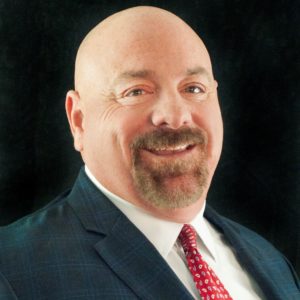The Future to Evaluating Brain Health Could Lie in Virtual Reality

Shaun Patel, co-founder and CEO, REACT Neuro
Virtual reality has provided senior care residents with a lifeline to the outside world during the isolation caused by the pandemic. But now, virtual reality is helping seniors in other ways – in fact, it’s being used to analyze brain health.
Pico Interactive, a global technology company, develops virtual reality solutions. When REACT Neuro, a virtual reality company that uses AI and digital exams to measure brain health, needed technology for its exams, the company turned to Pico’s Neo 2 Eye headset. The headset features Tobii Eye Tracking with advanced capabilities, allowing REACT Neuro to analyze brain health.
How REACT Neuro Is Evaluating Senior Brain Health
The technology has already been tested in multiple fields, including physical therapy. Now, REACT Neuro is performing digital exams to help evaluate and support brain health.
Shaun Patel, co-founder and CEO of REACT Neuro, explains that these digital exams offer multiple benefits. Each exam takes between three and five minutes to administer. “The exams measure changes in eye movement and voice, over time, to inform brain health,” Patel explains. “Each exam measures various domains of the brain, like working memory, as well as specific metrics from each exam, such as speed and accuracy.” Residents can see their results on a tablet after completing an exam.
While other neurological assessments require access to highly trained specialists, are time-consuming and expensive, and can be subjective in nature, REACT Neuro has taken a different approach. “We’ve reimagined these exams in a digital format building on scientific first principles and leveraging the power of machine learning to democratize access to simple, fast, and scalable data to empower people to engage proactively with their brain health,” says Patel.
The result is a test that offers multiple benefits to the senior living industry. “The industry is shifting from a hospitality focused business to a health driven enterprise. Seniors are demanding products that will help them extend their health and quality of life. REACT offers operators the ability to objectively quantify brain health with much greater efficiency than the current standard of care,” explains Patel.
“This not only gives them insight and provides transparency to all stakeholders in a resident’s brain health but can also help understand how various engagement programs have an effect on health. In addition, we see REACT as a way for operators to engage with the broader community, including seniors who want to age in place at home.”
The REACT Neuro Evaluations So Far
In January of 2021, Asbury Methodist Village, a senior living community in Gaithersburg, Maryland, began using REACT Neuro. Sue Paul, Director of Wellness at Asbury Methodist Village, says, “Asbury Methodist Village had invested in brain health through several other programs in recent years, and there is a very strong interest among the residents here, so being the ‘test’ site was a natural fit. One resident in particular was very interested in the tool’s ability for early detection of changes in brain function and provided philanthropic support to bring the tool here,” explains Paul.
Paul notes that Asbury Methodist Village currently has a cohort of 28 people participating in the evaluations. Those residents are scheduled for 15-minute appointments each week, and they complete one to two assessments during each appointment. The facility is training some people to do their testing on their own time with the tablet and VR headset.
“Testing consists of several standardized cognitive and VOR assessments group into test batteries. There are also some VR experiences (beach, mountains, Paris) for the residents to enjoy as well as meditation and breathing exercises,” says Paul. The goal is to create personalized treatment plans, including physical exercise and cognitive training, to promote brain health.
“Residents are definitely improving as they’ve learned how to use the technology and what to expect from the VR experience,” Paul notes. “They are more efficient and process instructions faster than the initial few weeks. We don’t have any hard data yet on cognitive improvement.”
The overall response to the technology has been overwhelmingly positive, too. “The wellness staff and our community’s executive director are thrilled to be on the ground floor of such an exciting technology,” says Paul. “The REACT Neuro team was great with training, and now that we are becoming more proficient with the technology and processes, we are even more excited. It is really incredible to think that we are playing a role in something that has the potential to help millions of people.”
Facility residents were also eager to help. “Asbury Methodist Village is located in the metro-DC region, and we have a highly educated and highly engaged resident population,” explains Paul. “We very quickly got a group of volunteers, including quite a few people with research and science backgrounds, who are excited to be providing the data that is essentially building this tool’s benchmarking capabilities. So, beyond their excitement and interest in the tool, they understand the value of their participation.”
The evaluations being done at Asbury Methodist Village could be the first steps in a new and exciting use of technology to better measure and support brain health. By eliminating the need for highly trained experts and the subjectivity that often comes with neurological tests, this VR technology would make these evaluations much more accessible for senior care facilities across the country.

Paige Cerulli is a contributing writer to i Advance Senior Care.
Related Articles
Topics: Activities , Articles , Featured Articles , Information Technology , Resident Care , Technology & IT , Training











